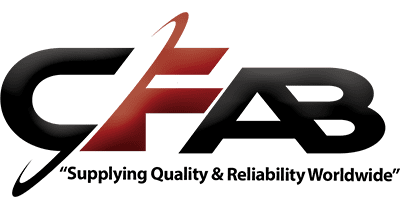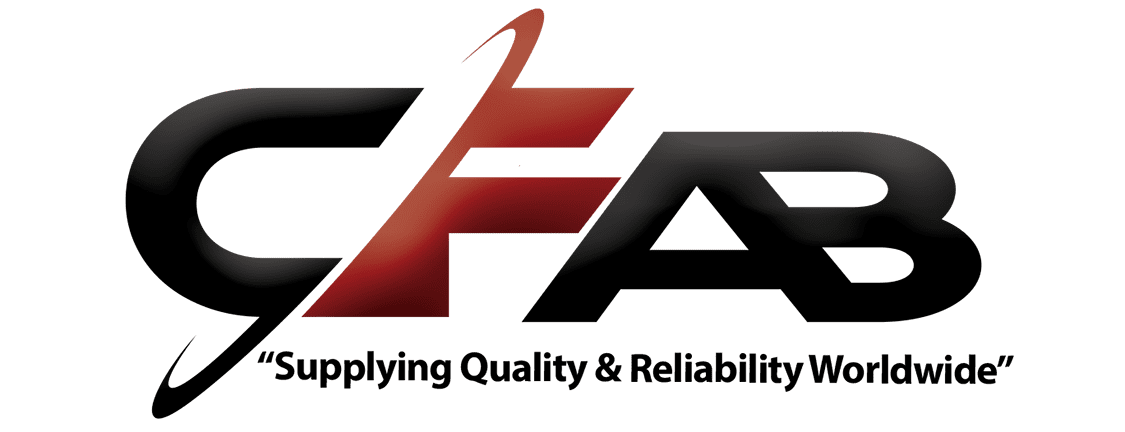What lubricants are safe for a meat slicer? The answer is simple and crucial: Use only food-grade lubricants, preferably with a NSF H1 rating. This ensures safety and complies with regulations for equipment that may come in contact with food. Avoid mineral and vegetable oils as they can lead to contamination and other issues.
Now, let’s dive into why this is important.
Meat slicers, like any machinery with moving parts, require regular lubrication to function smoothly and safely. But when these machines come into contact with food, safety becomes even more critical. Using food-grade lubricants protects not only the equipment but also your clients from any potential harm. A meat slicer that is well-lubricated with the correct lubricant operates efficiently and lasts longer, reducing the chances of unplanned breakdowns and costly repairs. This highlights the importance of using the right products, such as those from Texas Refinery Corp, which are specifically designed for food industry applications.
I’m Todd Cleppe, and I’ve dedicated over 25 years to enhancing machinery performance, particularly in the food industry. At CFAB Global, we understand the significance of using safe lubricants for meat slicers and provide expert solutions to ensure your equipment runs smoothly. In the following sections, we’ll explore this topic in more depth.
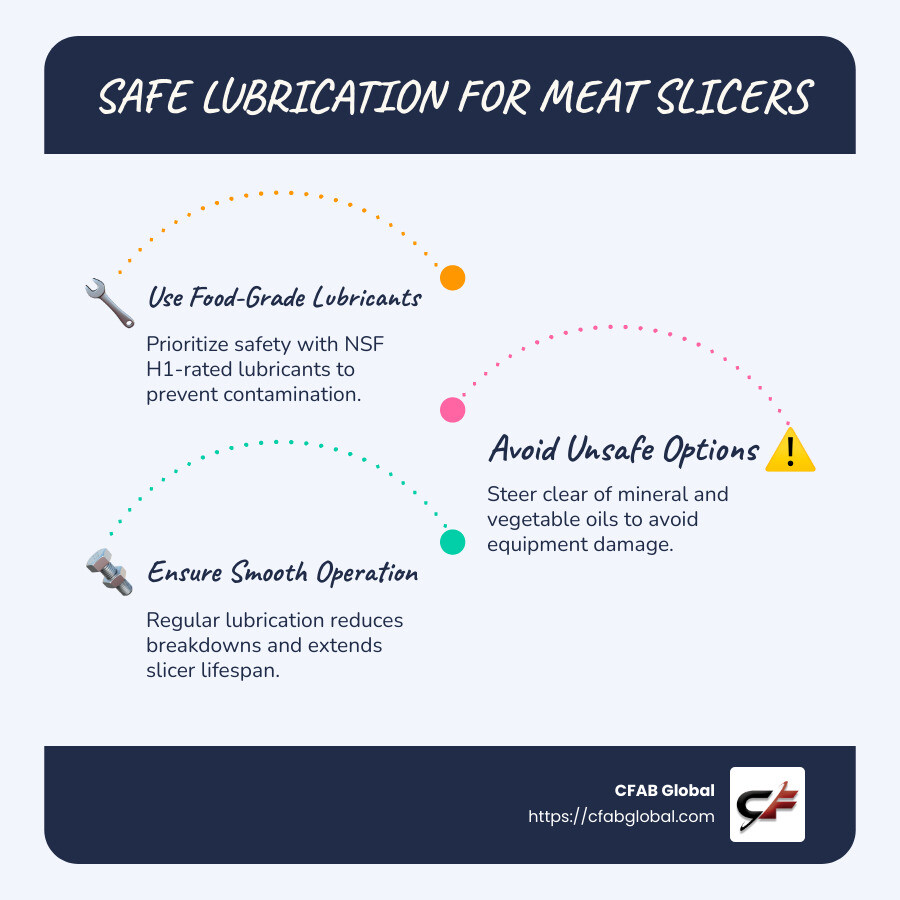
What Lubricants are Safe for a Meat Slicer?
When it comes to keeping your meat slicer in top condition, choosing the right lubricant is essential. Food-grade lubricants are the only safe option for equipment that might come into contact with food. This is where the NSF H1 rating comes into play.
Why Choose Food-Grade Lubricants?
Food-grade lubricants are specially formulated to be safe for incidental contact with food. This means if a small amount accidentally gets onto the food, it won’t cause harm. The NSF H1 rating is the gold standard for such lubricants, indicating they are safe for use in food processing environments.
Using a lubricant like Interflon Food Lube ensures that your meat slicer operates smoothly without compromising safety. Interflon Food Lube is not only H1-rated but also features MicPol® technology, which repels water and particles. This makes it ideal for food processing equipment, providing long-lasting protection.
Here’s why food-grade lubricants are a must:
- Safety: Protects consumers from potential contamination.
- Performance: Keeps machinery running efficiently.
- Compliance: Meets regulatory standards for food safety.
Avoiding Unsafe Lubricants
Not all lubricants are created equal. Some, like mineral oil and vegetable oil, might seem like cost-effective options, but they come with significant risks.
Mineral Oil: Although cheap, it is drippy and can create a mess. It collects dirt and food particles, forming an abrasive paste that wears down equipment faster.
Vegetable Oil: While safe for consumption, it can grow bacteria, leading to contamination. This poses a serious health risk and should be avoided at all costs.
Using non-food-grade lubricants can lead to contamination and compromise the safety of your food products. Always choose a lubricant that is specifically designed for food industry applications, like those offered by Texas Refinery Corp. These products are engineered to protect your equipment and ensure safe operations.
By selecting the right lubricant, you not only extend the life of your meat slicer but also maintain the highest standards of food safety.
Top Food-Grade Lubricants for Meat Slicers
When it comes to selecting the best lubricants for your meat slicer, two names stand out: Interflon Food Lube and products from Texas Refinery Corp. These options ensure that your equipment remains in optimal condition while adhering to stringent food safety standards.
Interflon Food Lube
Interflon Food Lube is a top choice for maintaining meat slicers. This lubricant is NSF H1-rated, meaning it’s safe for incidental food contact. But what’s special about Interflon Food Lube is its MicPol® technology. This feature provides excellent water and particle resistance, ensuring long-lasting lubrication and protection for your equipment.
- Durability: Interflon Food Lube lasts up to ten times longer than typical lubricants, reducing the frequency of application.
- Efficiency: Its penetrating action coats every crevice, ensuring comprehensive coverage.
- Safety: It dries to a clear, solid film that repels water and particles, keeping your slicer clean and efficient.
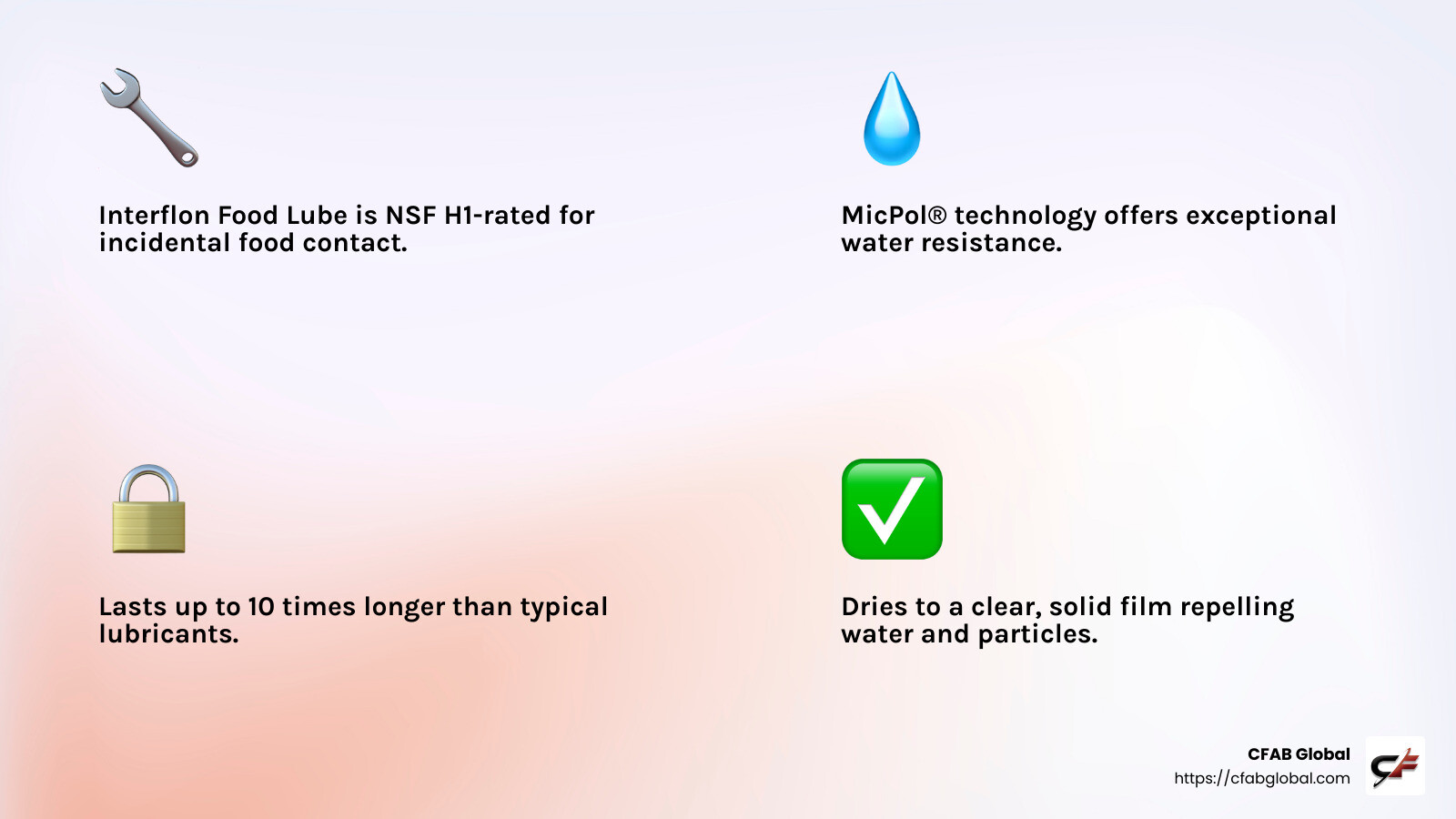
Texas Refinery Corp Products
Another excellent option for food-grade lubricants is Texas Refinery Corp. Known for their commitment to quality, Texas Refinery Corp offers lubricants that are designed to protect your investment. Their products are engineered to meet the highest standards of food safety, ensuring your meat slicer operates smoothly without risk of contamination.
- Quality Assurance: Each product is crafted with the highest quality in mind, ensuring reliability and safety.
- Customer Trust: With a long history of satisfied customers, Texas Refinery Corp products are trusted across the industry.
Choosing the right lubricant is crucial for the performance and safety of your meat slicer. With options like Interflon Food Lube and Texas Refinery Corp products, you can ensure your equipment runs smoothly and safely, keeping your operations compliant with food safety regulations.
How to Properly Lubricate Your Meat Slicer
Maintaining your meat slicer is key to ensuring its longevity and performance. Proper lubrication not only keeps your slicer running smoothly but also ensures safety in food processing environments. Let’s explore a step-by-step guide to effectively lubricate your meat slicer.
Step-by-Step Lubrication Guide
1. Disassembly
Before you start lubricating, it’s crucial to disassemble your meat slicer according to the manufacturer’s instructions. This ensures you can reach all the necessary parts that need lubrication. Refer to your slicer’s manual for specific disassembly steps, or look for instructional videos online for visual guidance.
2. Identify Lubrication Points
Focus on the key components that require lubrication:
- Carriage Rods: These help the slicer move smoothly. Ensuring they are well-lubricated reduces friction and wear.
- Adjustment Knobs: Proper lubrication ensures easy adjustment of slicing thickness and maintains precision.
- Shafts and Bolts: Any moving part or component that requires disassembly for cleaning should be lubricated.
3. Choosing the Right Lubricant
Always opt for a food-grade lubricant with an NSF H1 rating, like those from Texas Refinery Corp. These lubricants are safe for incidental food contact and provide long-lasting protection.
4. Aerosol Application
Using an aerosol can makes application straightforward and efficient. Products from Texas Refinery Corp, for instance, come with a straw for precise application.
- Quick Spray: Apply a quick spray to each lubrication point. Ensure even coverage, but avoid over-spraying to prevent excess lubricant from dripping onto food-contact surfaces.
- Drying: Let the lubricant dry to form a protective film. This film will repel water and particles, keeping your slicer clean.
5. Maintenance
Regular maintenance is vital. Schedule routine checks to ensure each part remains well-lubricated. This not only extends the life of your slicer but also minimizes downtime due to maintenance issues.
By following these steps, you ensure your meat slicer operates efficiently and safely, keeping both your equipment and food products in top condition. Proper lubrication is a small task that pays off with big benefits in performance and safety.
Frequently Asked Questions about Meat Slicer Lubrication
What oil do you put in a meat slicer?
When it comes to lubricating a meat slicer, food-grade lubricants with an NSF H1 rating are your best choice. These lubricants are designed to be safe for incidental contact with food. Products like Interflon Food Lube or those from Texas Refinery Corp are excellent options. Avoid using non-food-grade oils such as mineral or vegetable oils, as these can cause contamination and other issues.
How do you keep meat from sticking to a meat slicer?
To prevent meat from sticking to your slicer, consider using a non-stick spray designed for food contact surfaces. This can provide a slick surface that helps meat slide more easily. Additionally, slicing meat while it’s cold can reduce sticking, as the firmer texture is less prone to adhering to the slicer blade. Always make sure your slicer is clean and well-lubricated to minimize friction.
What is not recommended when operating a meat slicer?
There are several practices to avoid when using a meat slicer to ensure safety and efficiency:
- Avoid Hand-Feeding: Always use the pushing device provided with your slicer. This keeps your hands away from the blade and reduces the risk of injury.
- Chute-Fed Slicers: If your slicer has a chute, use it to feed meat into the machine. This method is safer and more efficient.
- Proper Sanitizing: After use, clean the slicer with a suitable sanitizing solution to prevent bacterial growth and ensure food safety. Avoid using abrasive materials that could damage the slicer.
By following these guidelines, you can maintain a safe and efficient operation, keeping your meat slicer in top condition while ensuring the highest standards of food safety.
Conclusion
At CFAB Global, we understand the importance of maintaining the reliability and efficiency of your machinery, including meat slicers. Our commitment to enhancing machine reliability is evident in our comprehensive solutions custom to meet the specific needs of your operations.
Operational efficiency is crucial in any industry, especially when it comes to food processing. Using the right lubricants, like those from Texas Refinery Corp, ensures your meat slicers run smoothly, reducing downtime and extending their lifespan. This not only improves productivity but also maximizes your return on investment.
Our Machine Reliability Program is designed to support businesses in achieving these goals. By choosing CFAB Global, you’re not just investing in lubricants; you’re investing in a partnership that prioritizes your success through proactive maintenance and customized solutions.
For more information on how we can help you maintain optimal performance and reliability in your operations, visit our website or contact us directly. Together, we can keep your machinery—and your business—running smoothly.
